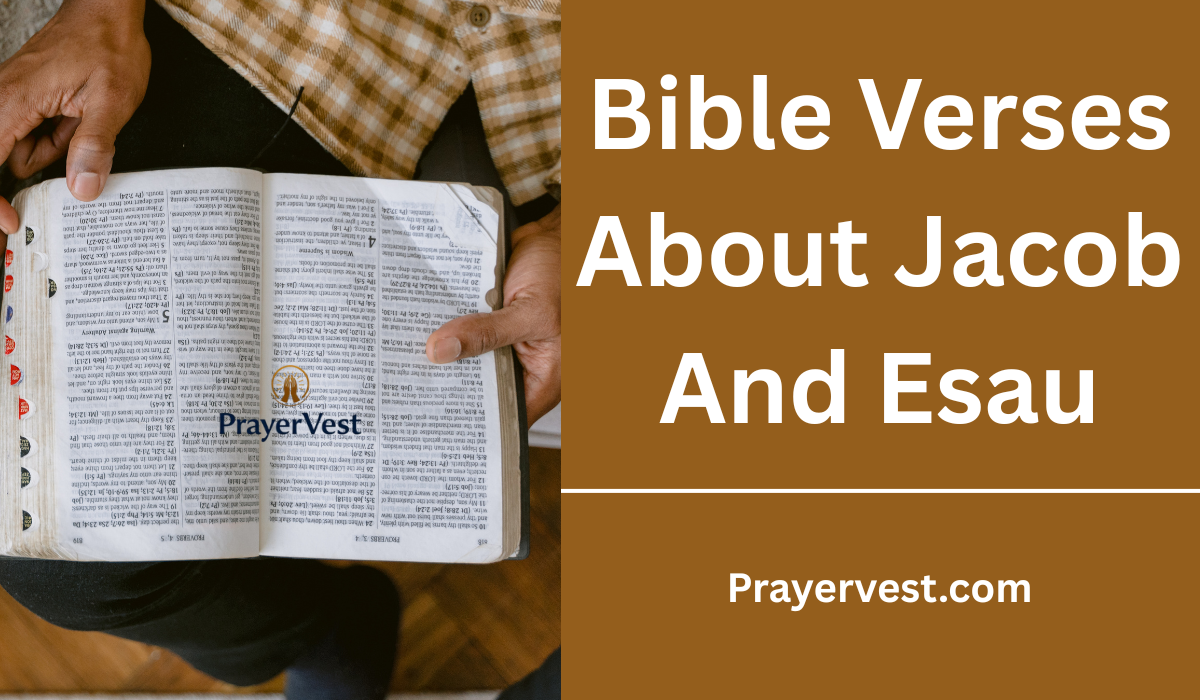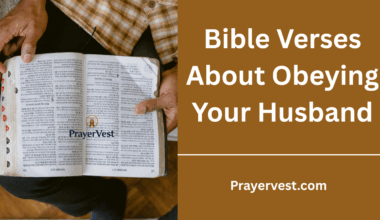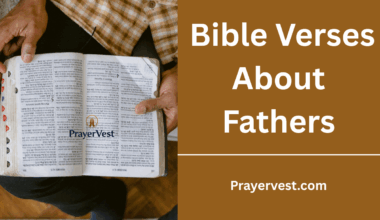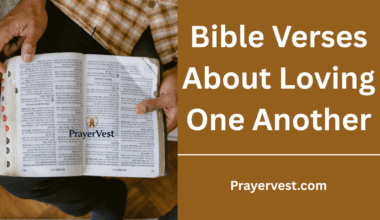One of the most gripping stories in the Bible is the tale of Jacob and Esau, which reveals important details about God’s omnipotence, human nature, and divine intent. These twin twins, who were born to Isaac and Rebekah, symbolize two opposing fates and two nations that are at odds from the start.
Jacob, holding his brother’s heel, represented the one who would eventually exceed him, while Esau, the firstborn, came forth red and strong, a man of the field. Their story is a divine tapestry woven with themes of blessing, deceit, redemption, and the enigmatic operations of God’s purpose that go beyond human comprehension. It is not merely a story of sibling rivalry.
Jacob and Esau are timeless representations of covenant and choice in the Bible. The catastrophic result of undervaluing spiritual inheritance and the transient nature of earthly appetite are exemplified by Esau, who sold his birthright for a bowl of soup. Jacob, the father of the twelve tribes of Israel, serves as the conduit through which God’s covenant promises are carried out, despite his imperfections and occasional dishonesty.
Their tale serves as a reminder to readers that God’s favor is based on His divine purpose rather than human merit or tradition. The conflict between human urge and divine calling, as well as between the flesh and the spirit, is highlighted by the contrast between the two brothers.


The lessons learned from Jacob and Esau’s lives resonate through generations of religious belief and go well beyond their individual struggles. Their legacy, which spans from Genesis to the New Testament, acts as a mirror for believers, encouraging introspection about our own decisions, aspirations, and relationship with God. We are invited to comprehend the extent of divine generosity by the Scriptures that tell their story—that God can use defective vessels to carry out His perfect plan and turn deception into destiny. The God of Abraham, Isaac, and Jacob is revealed in these verses to be the same God who redeems, disciplines, and accomplishes His promises in ways that are beyond human comprehension.
40 Inspiring Bible Verses About Jacob And Esau (2026)
1. Genesis 25:23
“The LORD said to her, ‘Two nations are in your womb, and two peoples from within you will be separated; one people will be stronger than the other, and the older will serve the younger.’”
This verse captures the divine prophecy given to Rebekah about her twin sons, Jacob and Esau. Even before their birth, God revealed His sovereign plan—that the natural order would be reversed, and Jacob, the younger son, would inherit the covenant blessings. This passage reminds us that God’s purposes transcend human traditions and expectations. He chooses according to His will, not human merit or birthright, emphasizing divine sovereignty in the unfolding of destiny.
2. Genesis 25:26
“Afterward his brother came out, with his hand grasping Esau’s heel; so he was named Jacob.”
Jacob’s birth, marked by his grasping of Esau’s heel, symbolizes his lifelong struggle for the blessing and inheritance. The name “Jacob,” meaning “heel-grabber” or “supplanter,” foreshadows the tension that will define his relationship with Esau. This detail is not merely descriptive—it prophetically reveals the struggle between flesh and spirit, human striving and divine calling.
3. Genesis 25:29-30
“Once when Jacob was cooking some stew, Esau came in from the open country, famished. He said to Jacob, ‘Quick, let me have some of that red stew! I’m famished!’”
This moment marks the beginning of Esau’s disregard for spiritual inheritance. Driven by hunger, Esau prioritizes immediate satisfaction over eternal promise. Jacob’s calculated request for Esau’s birthright in exchange for stew exposes both human weakness and divine orchestration—showing how momentary desires can cost eternal blessings.
4. Genesis 25:33-34
“But Jacob said, ‘Swear to me first.’ So he swore an oath to him, selling his birthright to Jacob. Then Jacob gave Esau some bread and some lentil stew.”
Here, the transaction is sealed—Esau despises his birthright, valuing physical hunger above spiritual legacy. This passage is a warning about undervaluing God’s promises. Jacob’s ambition, though flawed, contrasts with Esau’s indifference. God uses this moment to highlight the eternal significance of spiritual inheritance over temporal gratification.
5. Genesis 27:27-29
“Ah, the smell of my son is like the smell of a field that the LORD has blessed. May God give you heaven’s dew and earth’s richness—an abundance of grain and new wine.”
Isaac’s blessing upon Jacob—mistakenly believing him to be Esau—transfers covenantal authority. Though obtained through deception, it fulfills God’s prophecy that the elder would serve the younger. This passage reveals that God’s purposes are not hindered by human imperfection; His covenantal plans prevail even through flawed means.
6. Genesis 27:41
“Esau held a grudge against Jacob because of the blessing his father had given him. He said to himself, ‘The days of mourning for my father are near; then I will kill my brother Jacob.’”
This verse exposes the destructive power of bitterness. Esau’s anger over losing the blessing turns into murderous intent, echoing the ancient pattern of Cain and Abel. It serves as a warning against harboring resentment, showing how jealousy and revenge can poison even familial bonds.
7. Genesis 28:12-13
“He had a dream in which he saw a stairway resting on the earth, with its top reaching to heaven, and the angels of God were ascending and descending on it.”
Jacob’s vision at Bethel marks his spiritual awakening. Fleeing from Esau’s wrath, he encounters God in a dream that confirms the Abrahamic covenant. The stairway symbolizes divine connection—God reaching down to humanity despite sin and brokenness. This moment transforms Jacob from a deceiver into a recipient of grace.
8. Genesis 32:24-28
“So Jacob was left alone, and a man wrestled with him till daybreak… Then the man said, ‘Your name will no longer be Jacob, but Israel, because you have struggled with God and with humans and have overcome.’”
Jacob’s wrestling encounter marks his spiritual transformation. The deceiver becomes “Israel”—one who contends with God and prevails. This pivotal moment represents the struggle for identity, faith, and divine purpose. God often meets us in our wrestling, not to destroy us, but to redefine us.
9. Genesis 33:4
“But Esau ran to meet Jacob and embraced him; he threw his arms around his neck and kissed him. And they wept.”
After years of separation and fear, Esau’s unexpected forgiveness restores their relationship. This emotional reunion reveals the healing power of reconciliation. Esau’s embrace is a testimony that God can soften even the hardest hearts, turning enmity into peace.
10. Malachi 1:2-3
“‘I have loved Jacob, but Esau I have hated,’ says the LORD.”
This verse emphasizes divine election, not emotional favoritism. God’s preference for Jacob symbolizes His covenantal choice—grace over human effort. It underscores that God’s purposes in salvation are rooted in mercy, not merit. The statement challenges readers to understand divine justice and grace within the larger context of redemptive history.
11. Romans 9:10-13
“Not only that, but Rebekah’s children were conceived at the same time by our father Isaac. Yet, before the twins were born or had done anything good or bad—in order that God’s purpose in election might stand: not by works but by him who calls—she was told, ‘The older will serve the younger.’ Just as it is written: ‘Jacob I loved, but Esau I hated.’”
Paul cites the story of Jacob and Esau to reveal the mystery of divine election. Before they were even born, God had already chosen Jacob as the covenant bearer. This passage underscores that God’s grace operates beyond human deeds or merit. It is not human effort that secures favor, but divine will. The story becomes a powerful reminder that God’s plans are guided by His sovereignty, not human performance.
12. Genesis 27:36
“Esau said, ‘Isn’t he rightly named Jacob? This is the second time he has taken advantage of me: He took my birthright, and now he’s taken my blessing!’”
Esau’s outcry reveals the deep bitterness and regret born from his earlier choices. The name “Jacob” takes on full meaning—one who supplants. Yet even here, the narrative exposes human responsibility alongside divine purpose. Esau’s frustration serves as a cautionary tale about despising what is sacred and blaming others for consequences rooted in our own disregard for spiritual things.
13. Genesis 27:38
“Esau said to his father, ‘Do you have only one blessing, my father? Bless me too, my father!’ Then Esau wept aloud.”
Esau’s tearful plea reveals the pain of lost opportunity. Though he sought the blessing with tears, it was too late. This moment reflects the tragic reality that some decisions—especially those made in spiritual neglect—bear irreversible outcomes. It emphasizes the importance of valuing God’s promises before they slip beyond reach.
14. Genesis 27:39-40
“His father Isaac answered him, ‘Your dwelling will be away from the earth’s richness, away from the dew of heaven above. You will live by the sword and you will serve your brother.’”
Isaac’s words over Esau are not a curse but a prophecy of his descendants’ destiny. While Jacob inherits covenant blessings, Esau’s lineage will live by strength and conflict. Yet, the promise of eventual freedom—“when you grow restless, you will throw his yoke from off your neck”—hints that God’s justice allows space for renewal and independence even for those outside the chosen line.
15. Genesis 33:10
“No, please!” said Jacob. “If I have found favor in your eyes, accept this gift from me. For to see your face is like seeing the face of God, now that you have received me favorably.”
Jacob’s words to Esau signify deep repentance and reconciliation. Seeing Esau’s forgiving face mirrors Jacob’s earlier encounter with God at Peniel. This teaches that genuine reconciliation is a divine act—it reflects God’s own mercy and forgiveness working through human hearts. Jacob acknowledges grace where he once feared wrath.
16. Genesis 36:6-7
“Esau took his wives and sons and daughters and all the members of his household… and went to another land because their possessions were too great for them to remain together.”
This passage records Esau’s separation from Jacob. Though he did not inherit the covenant promise, God still blessed him materially. It reminds us that divine favor extends in different forms—Jacob received the spiritual covenant; Esau received earthly abundance. God’s justice ensures that both His chosen and the non-chosen experience His provision in unique ways.
17. Genesis 27:15-16
“Then Rebekah took the best clothes of Esau her older son, which she had in the house, and put them on her younger son Jacob.”
Rebekah’s actions reflect the human attempt to fulfill divine prophecy through deceitful means. Though God had already destined Jacob to receive the blessing, human manipulation adds complexity to His plan. The story reminds us that divine will does not require human deceit—God’s purposes unfold perfectly without deception.
18. Genesis 32:3-4
“Jacob sent messengers ahead of him to his brother Esau… saying, ‘Your servant Jacob says, I have been staying with Laban and have remained there till now.’”
Jacob’s humility before Esau reveals transformation. Once proud and scheming, he now identifies himself as Esau’s servant. The one who grasped at blessing now seeks reconciliation. This verse underscores how encounters with God—like Jacob’s at Bethel—can change a person’s character, replacing pride with repentance.
19. Genesis 33:9
“But Esau said, ‘I already have plenty, my brother. Keep what you have for yourself.’”
Esau’s response to Jacob’s offering demonstrates grace and generosity. Though wronged in the past, Esau chooses peace over revenge and contentment over greed. This moment reveals maturity and divine intervention in softening hearts. Forgiveness, when embraced, restores dignity to both giver and receiver.
20. Hebrews 12:16-17
“See that no one is sexually immoral, or is godless like Esau, who for a single meal sold his inheritance rights as the oldest son.”
The New Testament uses Esau as a warning against spiritual carelessness. His decision to trade birthright for a meal epitomizes short-sightedness—a preference for flesh over faith. The passage teaches believers to guard their spiritual inheritance with reverence and not exchange eternal blessings for fleeting pleasures.
21. Genesis 27:5-6
“Now Rebekah was listening as Isaac spoke to his son Esau. When Esau left for the open country to hunt game and bring it back, Rebekah said to her son Jacob…”
Rebekah’s eavesdropping and scheming show her determination to secure God’s promise for Jacob by human means. While her intentions aligned with divine prophecy, her methods sowed division. The story reminds us that faith must rest on trust, not manipulation—God’s timing does not require deceit.
22. Genesis 27:22
“Jacob went close to his father Isaac, who touched him and said, ‘The voice is the voice of Jacob, but the hands are the hands of Esau.’”
Isaac’s confusion represents the intersection of truth and deception. Jacob’s disguise exposes the dangers of deceit, even in the pursuit of divine blessing. The verse symbolizes how human cunning can complicate divine will, reminding us that God values integrity over strategy.
23. Genesis 28:1
“So Isaac called for Jacob and blessed him. Then he commanded him: ‘Do not marry a Canaanite woman.’”
This second blessing over Jacob confirms divine favor and covenantal continuity. Unlike the deceitful first blessing, this one is deliberate and sincere. Isaac now recognizes God’s hand on Jacob’s life, reaffirming the covenant and commissioning him for a holy lineage.
24. Genesis 27:42-43
“When Rebekah was told what her older son Esau had said, she sent for her younger son Jacob and said to him, ‘Your brother Esau is planning to avenge himself by killing you. Now then, my son, do what I say: Flee at once to my brother Laban in Haran.’”
The consequences of deception unfold swiftly. Rebekah’s plan to bless Jacob leads to separation from both sons—Jacob flees, and Esau is filled with rage. This passage highlights how sin, even when driven by faithless zeal, brings sorrow. Yet, even through chaos, God’s promise continues to advance.
25. Genesis 33:11
“Please accept the present that was brought to you, for God has been gracious to me and I have all I need.”
Jacob’s insistence that Esau accept his gifts symbolizes restitution and gratitude. Once a deceiver, Jacob now gives freely, acknowledging God’s grace as his true source of wealth. The act of giving becomes an offering of peace, sealing reconciliation between brothers.
26. Genesis 27:28-29
“May God give you heaven’s dew and earth’s richness—an abundance of grain and new wine. May nations serve you and peoples bow down to you. Be lord over your brothers, and may the sons of your mother bow down to you.”
Isaac’s prophetic blessing over Jacob carries generational authority. Though spoken in error, it reflects divine intent—the covenantal favor that brings abundance, dominion, and divine protection. The imagery of “heaven’s dew” and “earth’s richness” speaks to both spiritual and material prosperity under God’s promise. God’s plan for Jacob unfolds even through human misunderstanding, showing that His word transcends human mistakes.
27. Genesis 26:34-35
“When Esau was forty years old, he married Judith daughter of Beeri the Hittite, and also Basemath daughter of Elon the Hittite. They were a source of grief to Isaac and Rebekah.”
Esau’s marriages to Hittite women reveal his disregard for the covenantal boundaries God had set for Abraham’s family. His choices cause great sorrow to his parents, who desired their son to remain faithful to God’s covenant people. This verse highlights the importance of aligning personal relationships with spiritual principles and divine instruction.
28. Genesis 28:10-11
“Jacob left Beersheba and set out for Haran. When he reached a certain place, he stopped for the night because the sun had set.”
Jacob’s journey into exile begins under the shadow of loss and uncertainty. Alone in the wilderness, he is unaware that God’s presence accompanies him. This transitional moment reminds us that divine purpose often unfolds in seasons of solitude and displacement. God’s presence does not depend on comfort—it thrives in the wilderness of faith.
29. Genesis 28:15
“I am with you and will watch over you wherever you go, and I will bring you back to this land. I will not leave you until I have done what I have promised you.”
God’s assurance to Jacob at Bethel confirms the covenant’s continuation. Despite Jacob’s failures and fears, God’s promise remains steadfast. This verse encapsulates divine faithfulness—God’s commitment to complete His work in those He has chosen. It is a reminder that His promises endure even when we falter.
30. Genesis 31:3
“Then the LORD said to Jacob, ‘Go back to the land of your fathers and to your relatives, and I will be with you.’”
After years of service under Laban, Jacob receives God’s command to return home. The Lord’s instruction signifies closure, restoration, and obedience. Jacob’s journey back represents repentance and renewal—a return not only to his homeland but to his divine calling. God’s promise of presence ensures courage amid uncertainty.
31. Genesis 31:42
“If the God of my father, the God of Abraham and the Fear of Isaac, had not been with me, you would surely have sent me away empty-handed.”
Jacob’s declaration to Laban acknowledges God’s protective hand. Despite deception and hardship, Jacob recognizes that every blessing came through divine providence. This verse portrays a matured Jacob—one who now attributes his success not to cunning but to God’s faithfulness. It reminds believers to recognize God’s unseen hand in every triumph.
32. Genesis 32:9-10
“Then Jacob prayed, ‘O God of my father Abraham, God of my father Isaac, LORD, you who said to me, “Go back to your country and your relatives, and I will make you prosper,” I am unworthy of all the kindness and faithfulness you have shown your servant.’”
This heartfelt prayer reveals Jacob’s humility and dependence on God. Gone is the self-reliant deceiver—Jacob now acknowledges his unworthiness and God’s mercy. His prayer models true repentance and gratitude, illustrating how encounters with grace reshape character and faith.
33. Genesis 32:11
“Save me, I pray, from the hand of my brother Esau, for I am afraid he will come and attack me, and also the mothers with their children.”
Jacob’s fear of Esau reflects his awareness of past wrongdoing. This plea shows his vulnerability and trust in divine protection. In facing Esau, Jacob also confronts his own past. The verse captures the tension between guilt and grace—showing that true courage is found in surrender to God’s mercy.
34. Genesis 33:3
“He himself went on ahead and bowed down to the ground seven times as he approached his brother.”
Jacob’s act of bowing seven times demonstrates humility, repentance, and respect. The once proud deceiver now chooses submission over pride. This posture of surrender becomes a symbol of reconciliation. It teaches that restoration often begins when pride bows before grace.
35. Genesis 33:12-13
“Then Esau said, ‘Let us be on our way; I’ll accompany you.’ But Jacob said to him, ‘My lord knows that the children are tender, and that I must move along slowly.’”
This exchange between Esau and Jacob displays newfound patience and maturity. Rather than rivalry, their words are marked by understanding. Jacob’s cautious response shows wisdom and discernment—proof that he has grown from impulsive ambition to thoughtful leadership under God’s guidance.
36. Genesis 35:1
“Then God said to Jacob, ‘Go up to Bethel and settle there, and build an altar there to God, who appeared to you when you were fleeing from your brother Esau.’”
God calls Jacob back to the place of his first encounter—Bethel. This command symbolizes renewal and remembrance. In returning to Bethel, Jacob revisits the foundation of his faith. The verse emphasizes the importance of revisiting spiritual milestones to rekindle devotion and gratitude for God’s sustaining grace.
37. Genesis 35:10-11
“God said to him, ‘Your name is Jacob, but you will no longer be called Jacob; your name will be Israel.’ And God said to him, ‘I am God Almighty; be fruitful and increase in number.’”
Jacob’s name change is reaffirmed by God, sealing his new identity as Israel—the father of a nation. This divine declaration finalizes his transformation. The man who once schemed for blessing now becomes the vessel of God’s covenant promise. It is a powerful testimony that God not only redeems our past but also redefines our future.
38. Obadiah 1:10
“Because of the violence against your brother Jacob, you will be covered with shame; you will be destroyed forever.”
The prophet Obadiah speaks against Edom—the descendants of Esau—for their hostility toward Israel, Jacob’s descendants. This verse fulfills the ancient tension between the brothers in a national dimension. It underscores that God’s justice defends His covenant people and that betrayal of brotherhood invites divine reckoning.
39. Genesis 36:8
“So Esau (that is, Edom) settled in the hill country of Seir.”
This verse records Esau’s permanent dwelling outside the Promised Land. His settlement in Seir symbolizes separation from the covenant line. Yet, even in distance, God’s providence ensures his stability and growth as a nation. It demonstrates that divine sovereignty governs all peoples, even those outside the covenant.
40. Genesis 49:31
“There Abraham and his wife Sarah were buried, there Isaac and his wife Rebekah were buried, and there I buried Leah.”
This final reference reflects Jacob’s acknowledgment of his lineage and divine heritage. By requesting burial among the patriarchs, Jacob reaffirms his place in God’s covenant story. The reconciliation with Esau and the restoration of his identity culminate in this peaceful closure—a testament that God’s purposes are always fulfilled through grace, reconciliation, and faithfulness across generations.
Conclusion
Jacob and Esau’s narrative serves as a reminder that God’s plans frequently defy human reasoning but eventually demonstrate His perfect wisdom. Their futures were entwined with divine purpose from conception, with Esau acting as a conduit of contrast and consequence and Jacob being selected to bear the covenant promise. However, their narrative ends with love and forgiveness in spite of betrayal, resentment, and devastation, demonstrating that God’s mercy can mend even the most severe wounds between brothers. Their lives demonstrate that God’s unwavering will and redeeming power—rather than perfection—are the foundation of divine calling.






